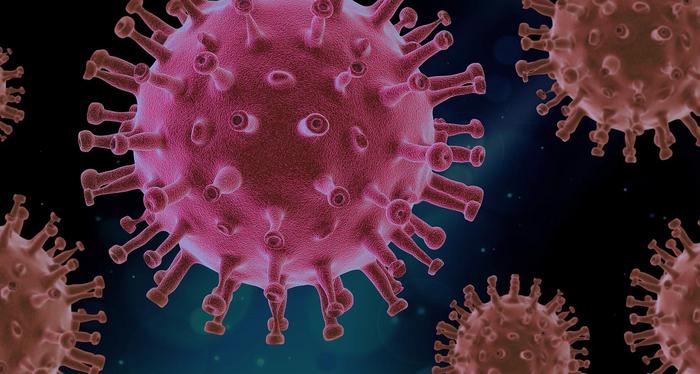
Two-thirds of individuals diagnosed with post-COVID-19 syndrome are experiencing persistent and objective symptoms that extend beyond one year, signaling a potential ongoing health crisis for many. This revelation comes from a groundbreaking study conducted by researchers affiliated with Freiburg University in Germany, published on January 23rd in the prestigious open-access journal PLOS Medicine. The study highlights the complexities of post-acute sequelae of COVID-19 (PCS) and sheds light on the physical and cognitive impairments that continue to affect a significant segment of the population.
The term “post-COVID-19 syndrome” encompasses a range of health issues that manifest after the acute phase of SARS-CoV-2 infections. While the public discourse frequently revolves around the immediate aftermath of COVID-19, the long-term effects — often referred to as long COVID — are less understood, leading to widespread concern among medical professionals and the general populace alike. The research involved a meticulous examination of 982 individuals aged between 18 and 65 years who had been previously diagnosed with PCS and contrasted them against 576 control subjects without the syndrome.
Participants in the study underwent comprehensive assessments at several university health centers located in southwestern Germany. These evaluations included a spectrum of tests to assess cognitive function, cardiopulmonary exercise capacity, and detailed laboratory analysis. Such a thorough approach is unprecedented in PCS research and underscores the need for robust clinical methodologies to understand the condition.
Among the various clusters of symptoms identified, fatigue and exhaustion emerged as prominent indicators, affecting nearly 68% of those surveyed. Furthermore, neurocognitive disruptions were common, illustrating how COVID-19 does not solely impact the respiratory system but also has deep neurological implications. Alongside these symptoms, many participants also reported experiences of chest discomfort, breathlessness, and psychological challenges, including anxiety and sleep disturbances.
An especially striking finding from the study is the prevalence of exercise intolerance coupled with post-exertional malaise. This debilitating symptom was reported in more than a third of subjects with PCS, revealing how the condition can drastically impair everyday functioning. It is worth noting that individuals with lower educational attainment, obesity, or a more severe initial illness were more susceptible to prolonged symptoms, indicating that socioeconomic factors may play a critical role in the development of PCS.
In examining objective health metrics, researchers discovered that those with persistent PCS exhibited notable deficits in measures such as handgrip strength, maximal oxygen consumption, and ventilatory efficiency. These findings further emphasize the physiological repercussions of the syndrome. Cognitive assessments revealed that patients suffering from persistent PCS, particularly those with post-exertional malaise, scored considerably lower than their control counterparts in tests meant to evaluate memory, attention, and processing speed. However, the researchers acknowledged a significant gap in the available data, particularly the absence of cognitive function assessments conducted prior to the acute COVID-19 illness.
The implications of these findings are profound, calling into question standard clinical practices surrounding the management of PCS. The researchers advocate for incorporating cognitive and exercise testing into routine evaluations for individuals suspected of having the syndrome. Such a paradigm shift could enhance monitoring and tailored interventions, ultimately improving outcomes for a growing cohort of patients grappling with the enduring aftermath of COVID-19.
Moreover, the authors stress the pressing need for observational studies with more extended follow-ups. Evaluating the myriad of factors that contribute to recovery or non-recovery from PCS will provide critical insights and assist in devising effective treatment strategies. It is evident that the complexities of long COVID extend beyond what can be captured in laboratory markers; the interplay of mental and physical health factors presents unique challenges for healthcare practitioners.
These findings signal a call to action within both public health and clinical settings. As the world continues to grapple with the ramifications of the COVID-19 pandemic, understanding the long-term impacts on survivors will be essential in shaping effective response strategies. Furthermore, community and global healthcare systems must prioritize research efforts aimed at elucidating the specific mechanisms underpinning PCS to tailor interventions accordingly.
Acknowledging the multifaceted nature of PCS is imperative. Future research must delve deeper into the pathophysiological mechanisms contributing to the syndrome’s persistence, offering vital clues to capable therapeutic modalities. By understanding the specific symptoms and their interrelations, healthcare professionals can better equip themselves to address the complexities of this condition and empower those affected with knowledge, support, and resources.
In conclusion, the landscape of post-COVID-19 syndrome is one marked by uncertainty yet filled with urgency. As researchers work tirelessly to uncover new understandings of the syndrome, it is clear that immediate and long-term support for individuals affected by PCS must remain a priority. The findings from the recent study catalyze a broader conversation about ongoing health challenges and the necessity of robust interdisciplinary approaches to address the legacy of COVID-19.
Subject of Research: People
Article Title: Persistent Symptoms and Clinical Findings in Adults with Post-Acute Sequelae of COVID-19/Post-COVID-19 Syndrome in the Second Year After Acute Infection
News Publication Date: January 23, 2025
Web References: PLOS Medicine
References: Kern, W., Nieters, A., Göpel, S., Merle, U., Steinacker, J. M., et al. (2025). Persistent symptoms and clinical findings in adults with post-acute sequelae of COVID-19/post-COVID-19 syndrome in the second year after acute infection: A population-based, nested case-control study. PLoS Med 22(1): e1004511.
Image Credits: PIRO4D, Pixabay (CC0)
Keywords: Post-COVID-19 syndrome, long COVID, persistent symptoms, cognitive impairments, exercise intolerance, health study, Freiburg University, PLOS Medicine.
Tags: assessment of cognitive function COVIDchronic health conditions following COVID-19cognitive impairments after COVID-19Freiburg University long COVID studyhealth crisis due to long COVIDlong COVID symptomslong-term effects of SARS-CoV-2medical implications of long COVIDpersistent symptoms post COVID-19physical health issues related to long COVIDpost-acute sequelae of COVID-19research on post-COVID syndrome





